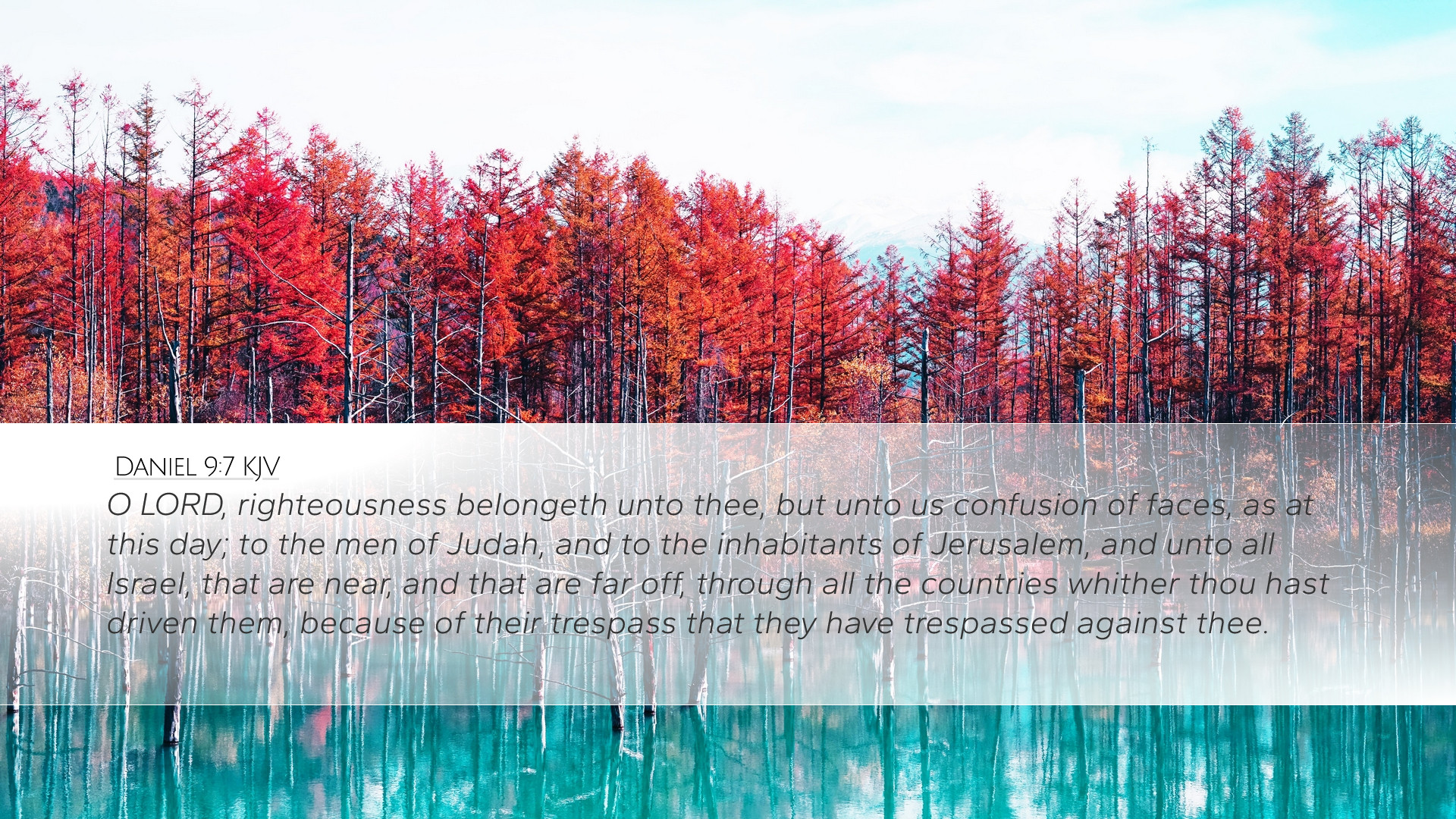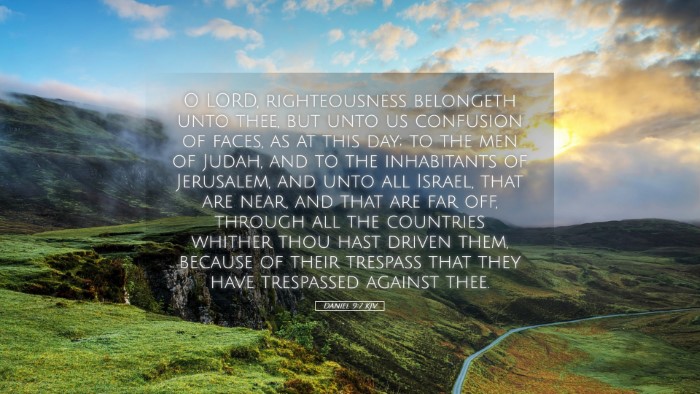Commentary on Daniel 9:7
Daniel 9:7 states: "O Lord, righteousness belongs to You, but to us shame of face, as it is this day—to the men of Judah, to the inhabitants of Jerusalem, and all Israel, those near and those far off, in all the countries to which You have driven them, because of the unfaithfulness which they have committed against You."
Introduction
The verse occurs within a prayer of confession by Daniel, acknowledging the themes of righteousness and shame in the context of Israel's sin and exile. This duality is central to understanding God's interactive nature with humanity, especially in the prophetic tradition. The insights derived from public domain commentaries highlight several aspects of interpretation vital for pastors, students, theologians, and Bible scholars.
Divine Righteousness
1. The Holiness of God: Daniel begins by affirming God's righteousness. This sets a juxtaposition between the moral perfection of God and the sinful state of humanity. Matthew Henry notes that the acknowledgment of God’s righteousness serves not only as a confession of faith but as a recognition of divine authority. God’s equity demands acknowledgment of His justice in judgment.
2. Righteousness in Judgment: Adam Clarke elaborates that God's righteousness leads Him to be just in His dealings with mankind. Here, Daniel appeals to God's character to underline that God's past actions—allowing their exile—are fundamentally rooted in His righteousness, which is unchanging and perfect.
Human Shame
1. Acknowledgment of Guilt: Daniel’s declaration of shame signifies collective guilt and recognition of sin, echoing Albert Barnes’ points on the importance of corporate confession. This corporate sin is articulated in such a way that it transcends individual accountability, impacting the entire nation.
2. The Nature of Shame: Matthew Henry emphasizes that shame is the rightful response to sin. Acknowledging one's shame before God is the first step toward restoration. Daniel deliberately includes "men of Judah," "inhabitants of Jerusalem," and "all Israel" to reinforce the communal aspect of sin, illustrating a heartfelt plea that recognizes their collective transgression.
Exile and Divine Discipline
1. Context of Exile: Clarke notes that the mention of God’s people being driven into foreign lands underscores the consequences of their unfaithfulness. The exilic experience was not merely a physical displacement but also a spiritual crisis—an opportunity for divine rectification through suffering.
2. Restoration through Recognition: Both Barnes and Henry assert that true restoration begins with the recognition of one's state before God. The emphasis on "those near and those far off" suggests that all of Israel, regardless of their geographical status, is called to repent. This serves as an invitation to return to the Lord, reflecting God’s readiness to embrace those who turn back to Him.
Application for Today
1. Modern Relevance: The themes in Daniel 9:7 resonate in current contexts. The acknowledgment of sin, the recognition of God’s holiness, and the resultant shame are ever-present in the life of the believer. This passage challenges contemporary believers to recognize their dependency upon God's grace for restoration.
2. Call to Repentance: The call to corporate repentance remains significant. Just as Israel had to confront their collective unfaithfulness, modern churches must also address their systemic failings. This verse can serve as a model for prayer, inviting believers and congregations to express a proper understanding of their relationship with God in the light of scripture.
Conclusion
In summary, Daniel 9:7 serves as a profound reminder of the essential truths regarding God's righteousness and human shame. By examining the insights from esteemed commentaries, we understand the depth of the appeal made by Daniel—one that establishes a pattern for prayer, repentance, and acknowledgment of God's merciful character. This reflection encourages pastors, students, theologians, and scholars to embrace these themes in their study and practice of faith, prompting a continual return to the heart of God through confession and renewal of commitment to His ways.


